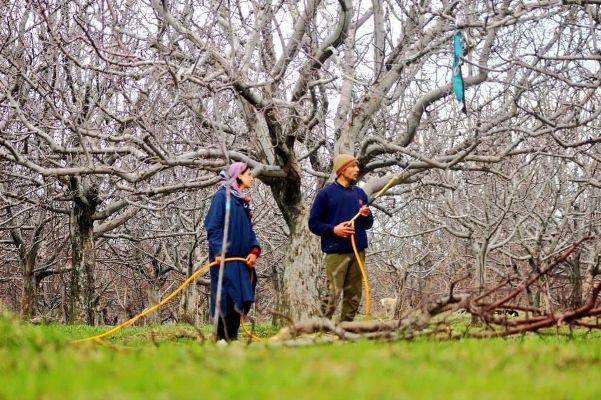IIOJK fruit growers face losses amid prolonged dry spell
 Srinagar: Fruit growers in Indian illegally occupied Jammu and Kashmir stare at losses as experts predict that the prolonged dry spell may lead to early flowering, impacting the quality and quantity of the fruit.
Srinagar: Fruit growers in Indian illegally occupied Jammu and Kashmir stare at losses as experts predict that the prolonged dry spell may lead to early flowering, impacting the quality and quantity of the fruit.
The continuous dry spell, with no rainfall or snowfall even in January, has raised concerns among fruit growers and farmers in the valley.
Experts warned that the lack of soil moisture resulting from the prolonged dry spell could adversely affect the quality and yield of fruits, particularly apples, in the upcoming season.
Prof Khalid Mushtaq, Head, Division of Fruit Sciences at University of Agricultural Sciences and Technology, Srinagar, said, “As of now, we are in a safe zone and let’s hope for the best.” However, if this dryness continues till February and the temperature rises to 20-25°c, then it could lead to early flowering that will impact the fruit set, he warned. He said the fruit set will be less and will impact the yield as well. He advised against pruning in these weather conditions, saying it can affect the trees.
Akhtar Malik, a scientist at the Kashmir University’s Department of Botany, highlighted the impact of insufficient chilling periods on bud production and flowering in trees. He explained that if temperatures rise in February, leading to bud and flower sprouting, subsequent rain or snow could result in flower drop due to inadequate pollination, ultimately affecting fruit production.
“The continuous dryness may cause a decline in the water table, affecting irrigation in rain fed orchards and impacting fruit quality,” Malik said.
According to experts, the dry spell raises concerns about frost damage to new fruit plantations, particularly in the lower and upper hills, as tissues of younger plants are susceptible to freezing in frost incidents. Moreover, the lack of moisture increases the vulnerability of fruit trees to pest attacks, they added.
Growers across occupied Kashmir are very much worried due to prolonged dry spells as they fear it will lead to their losses. They said after the early sprouting of flowers, there usually remains erratic weather in spring due to which flowers fall, thereby reducing quantity besides putting an impact on the quantity of the fruit.








